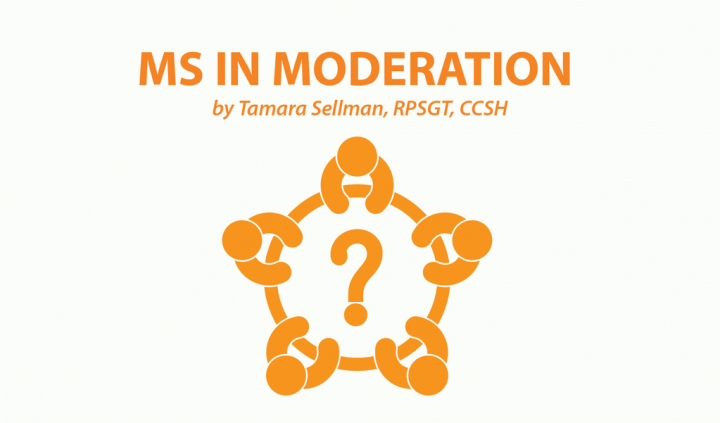Need to Know: The Importance of Self-advocacy
Written by |


Editor’s note: “Need to Know” is a series inspired by common forum questions and comments from readers. Have a comment or question about MS? Visit our forum.
This week’s question is inspired by the forum topic, “With MS I have learned the importance of being my own best advocate,” from May 21, 2018.
Every MS patient needs self-advocacy
You have received a diagnosis of multiple sclerosis (MS). You trust your doctor, or maybe you don’t. You have a bazillion questions about treatments, symptoms, accommodations, the future. What can you do to ensure you are getting the care you deserve? You become your own best advocate.
What is self-advocacy?
Speaking up for oneself is critical for anyone with chronic illness. Self-advocacy describes the efforts you make to represent yourself and your needs both inside and outside the healthcare system.
The concept of self-advocacy emerged from a civil rights movement for people with developmental disabilities to take control of their lives. This philosophy includes the right to make decisions about one’s care and treatment decisions.
As a person with MS, with or without disabilities, you deserve to have your concerns heard, ideas considered, and questions answered.
Why practice self-advocacy?
Learning how to be a good self-advocate can be difficult. After all, living with MS is hard enough. But in modern healthcare systems and with a web of misinformation online, being a good self-advocate protects you against:
- Malpractice, due to improper treatment or misdiagnosis.
- Insurance and medical fraud.
- Unexpected medical bills for services or medications you didn’t want or need.
- Abuse from healthcare personnel or loved ones, including both emotional and physical.
- Social media predators looking to exploit your fear as a person with MS.
- Ableism, which is discrimination against those with physical or mental disabilities; this bias is often unconscious.
How to become a great self-advocate
Establish a relationship with a doctor you trust
- Your doctor should have your best interests in mind. He or she should not dictate to you, but inform you of your options and counsel you on the risks and benefits of treatments.
- You should make the final decisions about your MS treatment; your doctor is there to help make your choices become realities.
- If you don’t trust your MS doctor or he doesn’t listen to you, you don’t have to stay with him. Interview other specialists and ask your MS peers for recommendations.
Look at your habits and lifestyle choices
- Keep a diary, or use an app, to reveal different aspects of your health. It can be illuminating.
- Record your diet, sleep, and exercise. Keep track of MS medications, symptoms, and side effects.
- Take note of your emotional ups and downs; keep a worry or gratitude journal.
- List personal goals; these can include pain management, weight loss, water consumption, and fatigue reduction.
- Review your notes to identify patterns that can help you better understand when MS rears its ugly head.
Educate yourself about MS
- Learning about your disease is lifelong, so start with the easy stuff: books written for patients and websites of organizations such as the National Multiple Sclerosis Society.
- Be vigilant about accuracy: Choose only trustworthy, legitimate sources. If you feel like a resource could be a sham, it probably is.
- Join peer support groups, in-person or online, where others share fellowship, frustrations, good news, and ideas. The more you know about MS, the more confident you will be as a self-advocate.
- The best doctors prefer empowered patients interested in self-education; if your doctor chastises you for asking questions they don’t want to answer, it might be time to find a new specialist.
Learn all you can about insurance and the healthcare system
Each patient has a different path in this regard. But the more you know about your insurance coverage — deductibles, copays, and benefits — the better decisions you will make about medications, assistance programs, and alternatives. Your doctor can be an ally here, too.
Believe in yourself
- Learning to ask for what you want, rather than being told what you should do, is liberating. It can help you develop a personal coping strategy that can preserve what you value and want as a person with MS.
- Believe that no one knows better than you do about what’s best for you. As a self-advocate, you learn how to stand up to those who might give you ignorant, or even dangerous, advice.
- Many people are intimidated by doctors and the healthcare environment because they’ve had bad experiences with providers or illnesses. If this is you, try to look at the system as your means to a better and achievable outcome.
- You deserve quality care and access to all of the options available to you. Yes, you do! Even if you can’t change your diagnosis, as a self-advocate, you will be empowered to direct your own course.
Are you new to MS and wonder how you can best advocate for yourself? Are you a loved one who wants to provide advocacy support to someone with MS? Do you have self-advocacy or patient advocacy stories you’d like to share with the community? Post your replies in the comments below or at the original “With MS I have learned the importance of being my own best advocate” forum entry.
***
Note: Multiple Sclerosis News Today is strictly a news and information website about the disease. It does not provide medical advice, diagnosis, or treatment. This content is not intended to be a substitute for professional medical advice, diagnosis, or treatment. Always seek the advice of your physician or other qualified health provider with any questions you may have regarding a medical condition. Never disregard professional medical advice or delay in seeking it because of something you have read on this website. The opinions expressed in this column are not those of Multiple Sclerosis News Today or its parent company, Bionews Services, and are intended to spark discussion about issues pertaining to multiple sclerosis.



GARY SHAMBLEN
Living in this maze of symptoms, medicines, doctors,
articles, advice, stories, etc. it can be easy to forget
to be your own best advocate.
Tamara Sellman
That is so true!
Tamara
Tomas Nilsson
I BELIEVE that: 'Social media predators looking to exploit your fear as a person with MS.' is a VERY valid concern
Tamara Sellman
Hi Tomas
Agreed, it's really a problem in some of the Facebook groups I've been a part of. The ones which are very carefully and actively moderated, which don't show a preference for products, approaches, or therapies, are the best ones.
Tamara
susan w newbury
As a retired R.N. living with M.S., being on the other side of the health care system is indeed a maze.The information on internet sites can be frightening. being well informed and speaking up for your self is important.I have to remember sometimes I am still that same person I was before.Each day is a gift, some times hard though to remember to find joy.
Tamara Sellman
Hi Susan
I love the reminder that "I am still that same person I was before." Not only does it work for people with MS, but it should be something that those in our circles (family, friends, co-workers, etc) should be reminded of, as well!
Tamara
Cp
I have never had an acceptable doctor/patient relationship with a neurologist and I am on the 5th one in 11 years. They all act they same way. They bully me for refusing the MS drugs and ignore the reasons I state for not being interested in the drugs. Once I had a neurologist ask me "Why are you even here, in my office?"
This is the prevailing attitude I have encountered. In every office summary, MRI, neuropsych test...they all write REFUSES MS DMTs. I am also patronized, chastized, and ignored. Almost everyone of them also refuses outright to deal with the disability forms I need filled out, even if I pay. Dealing with the medical profession has made my life a living hell. The bullying and ignoring my stated preferences and needs is abusive, causes significant stress and makes my MS worse. If I thought I could find a neurologist who would treat me with even a modicum of decency, I would move to that location. I don't believe it is possible to gind a neurologist in the US, who respects my choice not to take MS drugs, and their negativity comes out in dvery aspect of the "care" they proceed to subject me to. I am stuck between a rock and a hard place because I need to keep generating a paper trail of medical records for my LTD company but I am not treated well. I am not provided with care. I am researching my own posible options, like stem cell, alpha lipoic acid, plasmapheresis instead of steroids for relapses because I can't take steroids. My suggestions are rejected at every turn. I am lucky that I relapse infrequently. I am likely SPMS now but still occaisionally relapse. I am not lucky that a lot of damage had already been done by the time I was diagnosed. It took over over 20 years from onset of MS for me to get diagnosed because MRI did not exist yet and my symptoms were constantly blown off. Being female and single with no family contributed to that response from doctors. It didn't matter how much I advocated for myself. I don't think I deserve to be treated this way but I don't see it changing unless I stop dealing with neurologists.
Tamara Sellman
I'm sorry to hear of these struggles :(
FWIW, my own neuro made it clear I had a choice that included no DMTs. I think they do exist but I also think these are outliers.
Your experience with diagnosis pre-MRI seems to be mirrored anecdotally by the people in my life who were also diagnosed back in the 80s.
One thought is that you might approach a naturopath? I was given that option by my neurologist, as well. Might be worth a shot.
Kent Henson
What if you can't get a diagnosis? I am tired of advocating for myself to get a diagnosis. I have been sick for two years now with MS-type symptoms. Everything has been ruled out but I have no lesions, no bands in my CSF, and good reflexes. With my list of symptoms all put together, nothing else fits. Honestly, I am at my wit's end.
Tamara Sellman
That's a tough situation, but if it's any comfort to you, you are not alone. I know several people, personally, in the same boat. My suggestion is to find MS support groups online or in person and share your experiences... I have no doubt you will find many peers who also struggled before finally, after years, getting a diagnosis. Also, keep pushing the envelope with your MDs. Get a second, third, fourth opinion until your questions are answered. See a neurologist who specializes in MS (not all of them do). Good luck to you,
Tamara
Giuseppe Paolo Mazzarello
Finding herself in need of hospitalization, a 15-year-old girl asked her physician not to be sent to the pediatric hospital in Genoa (Italy), her hometown. The reasons for expediency were all there but she was a minor. Should she become a self-advocate? Then, what do children think of their care and how much do their physicians take this into account? Anyway, her physician arranged for her to be admitted to a hospital she accepted.